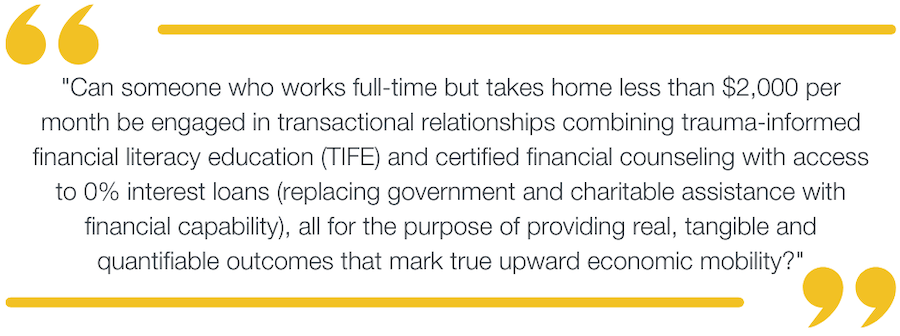
A catalyst for upward economic mobility.
In Mecklenburg County, an estimated 200,000 people work full-time and take home only $2900 each month – enough to cover basic housing, transportation, childcare and food costs. Unless. A car breaks down. A child gets sick. Or an injury causes missed days work. Then, the wolf is at the door. That is economic vulnerability, and it’s all too real for those who live in it.
Our Mission
The mission of Common Wealth Charlotte focuses on being a catalyst for improving lives. We replace uncertainty and reliance on charitable and government assistance with financial capability, equipping Charlotte's economically-vulnerable population with trauma-informed education, certified financial counseling, asset- and wealth-building skills, and access to banking services and 0% interest loans. Being financially capable is the foundation of true upward economic mobility. More importantly, financial capability brings hope—and hope goes a long way to heal trauma.
Mission Statement
To equip economically-vulnerable indivduals with increased financial capability, so they can attain financial stability and decrease reliance on charitable assistance. This is achieved through a trauma-informed approach including education, personalized counseling, access to banking, and no-interest loans.
It’s working.
Common Wealth Charlotte was formed in 2015 as an educated experiment, founded on a proposition:
In 2015, CWC’s founder, Darren Ash formed a start-up team to study clinical data on financial trauma. He and members of the team traveled extensively around the United States speaking with other organizations engaged in similar activities. Experienced and proven creators of financial literacy education were engaged to develop the CWC model, an approach not available in Charlotte or the Carolinas, and that has not been replicated in the market.
Ten years later, the experiment is a success. CWC proves every day that a dedicated client can successfully move away from continual reliance on government or charitable assistance into graduated tiers of financial capability. With this comes a reduction in the effects of the trauma associated with a life in poverty, and enhanced financial decision making. The cycle begins to be broken.




